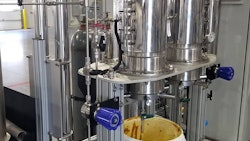
This week marked the first full week of Joe Biden’s presidency, and effects from the transition have already started to reverberate throughout the hemp industry. As is typical in new administrations, the White House issued a memo asking federal agencies to withdraw any rules that have not yet been published, and the FDA withdrew its “Cannabidiol Enforcement Policy” it submitted in July. Meanwhile, the USDA says it is “reviewing” its final rule on hemp, but it has not been withdrawn (though it could be subject to another public comment period). Read more
Though the final rule is under review, members of the industry are still reflecting on its contents as they stand. Executives with Native American Hemp, a company that grows and processes hemp as well as consults tribes and Indigenous-owned hemp businesses, shared their thoughts with Hemp Grower on various tribal-specific aspects of the final rule. “The new regulations provide helpful clarity on key points tribes need to consider in their hemp enterprises, such as how to establish an appropriate regulatory framework and enforcement mechanisms for hemp operations in tribal jurisdictions,” said company Chief Operating Officer Aaron Fournier. Read more
Meanwhile, a Kentucky senator is pushing back on the 0.3% THC limit set forth by federal regulations. State Sen. Adrienne Southworth introduced legislation in the state to increase the allowable amount of THC in hemp to 1% with the hopes that Kentucky can lead the charge in helping other states make the change at a local level. Read more
In other news:
Purdue University in Indiana has introduced a new course that will educate multiple professionals in the hemp industry, including growers, consultants, hemp product manufacturers and salespeople, on numerous aspects of the crop. Read more
Colorado-based Charlotte’s Web has filed a motion to dismiss its latest class-action lawsuit, at least put it on pause until the FDA completes its rulemaking process. But the plaintiff recently fired back arguing that labeling products as dietary supplements violates both California and federal laws, and that any guidance from the FDA would be forward-looking—not retroactive. Read more
The USDA is looking to fund one project to collect hemp germplasm for its Hemp Germplasm Repository located at Cornell AgriTech in Geneva, New York. The maximum grant amount for the hemp project is $125,000 per year for four years. Read more
























